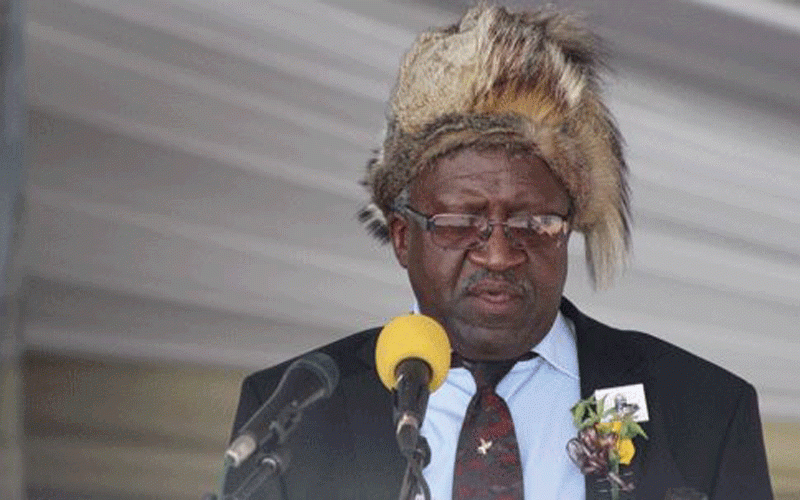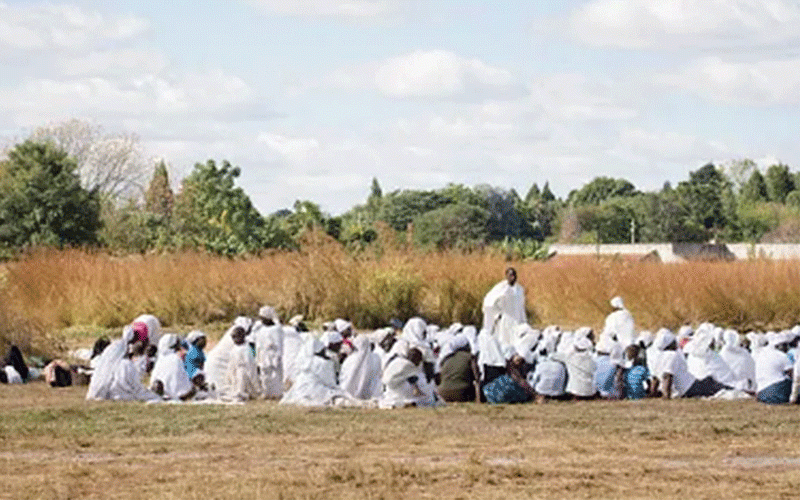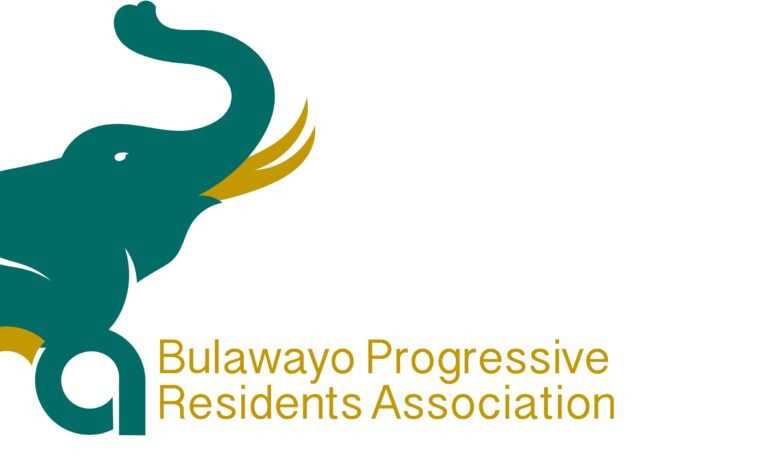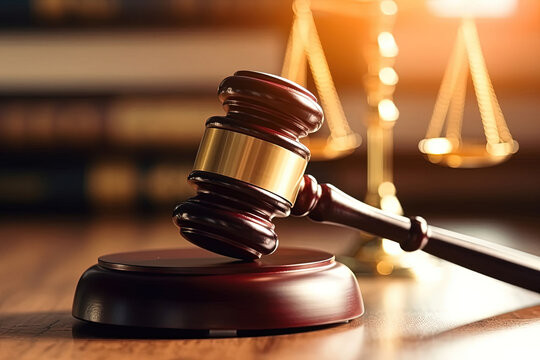
VARIOUS stakeholders in Matabeleland including opposition parties and Ndebele King Bulelani Khumalo have challenged people to boycott upcoming secretive Gukurahundi public hearings alleging that the process is flawed.
They raised fears that the security of victims, who will appear before the secretive panel, was not guaranteed if they unequivocally reveal the horrors of the 1980’s mass killings.
The long-awaited Gukurahundi hearings are set to start on June 26.
National Council of Chiefs deputy president Chief Fortune Charumbira, told a press conference in Bulawayo that the process will be held in private with the media also barred from covering the exercise.
Charumbira said only one victim at a time will appear before an unknown panel allegedly comprising elders, religious leaders, youth and women’s representatives.
The hearings will be overseen by local chiefs.
President Emmerson Mnangagwa appointed traditional leaders to lead the public hearings to resolve the country’s dark past.
Zapu leader, Sibangilizwe Nkomo , said the secretive hearings were flawed and meant to sweep Gukurahundi atrocities under the carpet.
- Mr President, you missed the opportunity to be the veritable voice of conscience
- ED to commission new-look border post
- Zanu PF ready for congress
- EU slams Zim over delayed reforms
Keep Reading
“What is supposed to start on June 26is a series of illegal kangaroo courts of panels set up to interrogate victims and survivors of Gukurahundi and its aftermath of Gukurahundism,” Nkomo said.
He said there can be no worse psychological torture than to invite a traumatised person into a room with a panel of unfamiliar people.
“Remember most of us still live in fear and no one has ever received any form of counselling,” Nkomo said.
“When Mnangagwa declared that people were now free to talk about Gukurahundi we welcomed that, thinking he was sincere to try and pave the way to finding justice and closure to the saga.
“We were all wrong as it is now clear that Mnangagwa was never sincere nor serious about finding a solution.”
Nkomo said he wrote to Mnangagwa last year raising objections about the planned public hearings.
“With this kind of methodology they are proposing I don't believe genuine victims and survivors will attend and we also don't encourage people to attend such brazenly kangaroo torture sessions,” he said.
“Our only worry is that fake victims might be used just for data gathering.
“We are watching and working 24 hours a day to make sure we stop this continuation of a moment of madness.”
Ndebele King Bulelani Khumalo’s spokesperson, Bornman Khumalo, described the process as flawed.
“Why is it secretive and why involve chiefs,” he said.
“We feel retired judges would be better placed to handle this so as far as we are concerned it’s a cosmetic exercise with no meaning at all.”
Matabeleland-based political outfit Freedom Alliance national spokesperson, Prince Ncube, said the process must be top-down and not biased against victims.
Ncube said there is high potential of manipulation of the outcome of the hearings and possible privatisation of the exercise. "We urge the government and chiefs to ensure transparency, accountability, and genuine public participation in the Gukurahundi outreach,” he said.
Hwange East legislator, Joseph Bonda (CCC) said the planned hearings were cosmetic.
“I hear chief’s secretaries will be replaced by chosen ones, probably security guys," Bonda alleged.
Zapu Bulawayo provincial secretary, Vivian Siziba, urged Gukurahundi victims to boycott the hearings.
"These Dumbutshena and Chihambakwe commissions of inquiry reports should had been the critical point of departure in resolving the Gukurahundi Genocide," Siziba said.
"As the situation stands, regarding these hearings no pieces of legislation exist to support this effort.
“It’s simply a farce."
The commissions were established by former Robert Mugabe in 1983 to investigate the alleged massacres and to assuage widespread international and domestic criticism of the killings in Matabeleland.
The findings of the inquiry were never made public.
According to the Catholic Commission for Peace and Justice, the disturbances left about 20 000 civilians dead.
"Chiefs are victims themselves, then how could they conduct hearings amongst themselves as victims?" Siziba said.
"This doesn't meet the accepted minimum international standards of peace building and healing processes.”
Gukurahundi survivor and human rights activist, Benny Moyo, said the process failed the transparency test.
"It is meant to dupe the world into believing that genocide has been resolved,” Moyo said.
“It is an attempt to dodge responsibility and attempt to dodge scrutiny because this is an important thing and we should be able from the onset to send a message to the security forces that human rights abuses will not be tolerated, but this approach will not do that.”
Mthwakazi Republic Party member, Mfanelo Sibanda, urged the people in Matabeleland not to attend the hearings.
“Firstly the Chiefs Council president is Mtshane Khumalo who is from Matabeleland but when announcing Gukurahundi at national level, Khumalo does not talk,” Sibanda said.
“Only Fortune Charumbira who is part of the perpetrators make announcements.
“Khumalo is just a stooge... we are not fools.
“We cannot be blinded by Zanu PF. “
Development practitioner, ThembelaniDube, said the process should have been premised on Truth-telling and reconciliation as was the case in Rwanda's Gacaca process.
"These courts, whose name means "justice on the grass" in Kinyarwanda, aimed to reveal the truth about the genocide, accelerate trials, eradicate impunity, reconcile Rwandans, and reinforce unity," Dube said.
"They involved the public in trying and judging those accused of genocide crimes, with a focus on restorative justice and community participation. Here's a more detailed explanation:
“The Gacaca courts were created as a response to the overwhelming number of genocide suspects and the limited capacity of the formal Rwandan courts."
In the late 1990s and early 2000s, thousands of people were arrested, and many were charged and tried under the Rwandese Gacaca system for the genocide that killed an estimated 800 000 Tutsis and moderate Hutus.
Gacaca took its name from a community-based dispute resolution mechanism traditionally used to resolve minor disputes, but drew heavily on a more conventional model of punitive justice.
Its objectives included not only delivering justice, but also strengthening reconciliation, and revealing the truth about the genocide.
A gacaca pilot phase began in 2002, but it was not until 2005 that gacaca courts began functioning.
Gacaca courts then processed almost two million cases until their closure in June 2012.
South Africa adopted a court like Truth and Reconciliation Commission in 1995 to deal with human rights violations that occurred under apartheid.
Its emphasis was on gathering evidence and uncovering information from both victims and perpetrators.
The South African model was hailed as an innovative model for building peace and justice as well as holding accountable those found guilty for human rights violations.










